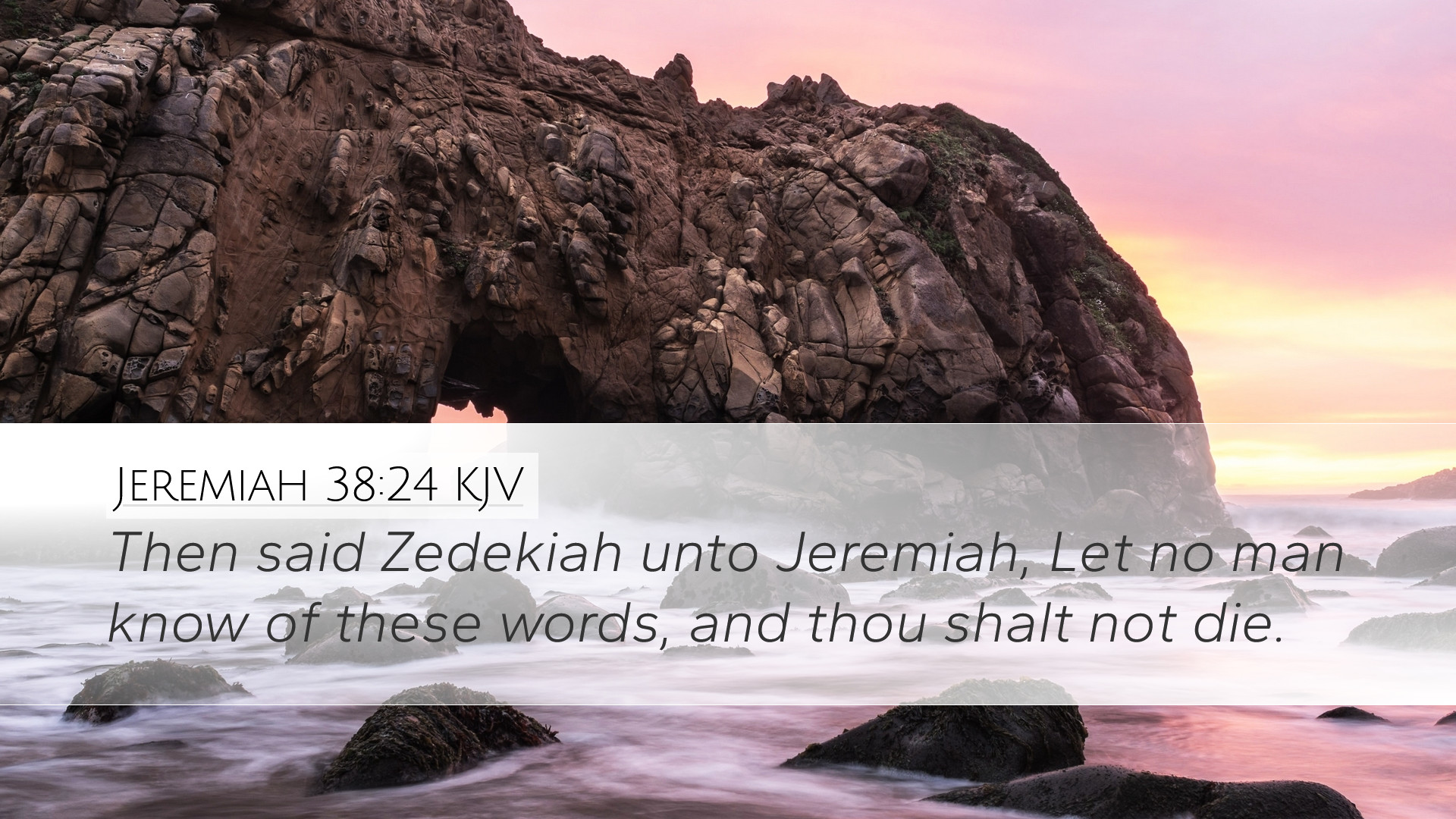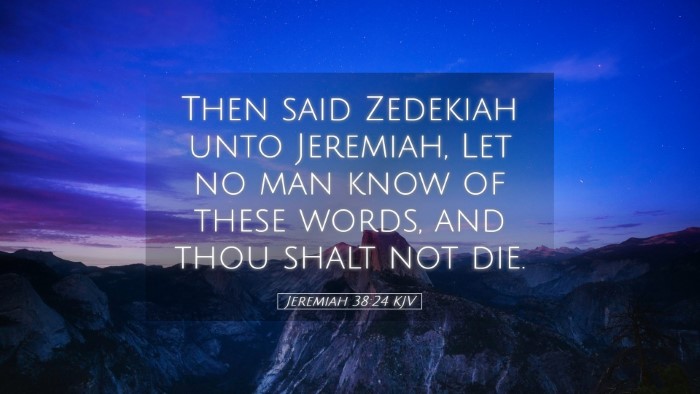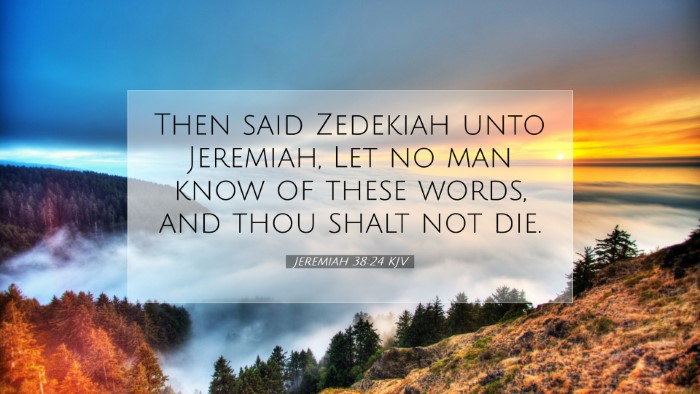Commentary on Jeremiah 38:24
Verse: "Then said Zedekiah unto Jeremiah, Let no man know of these words, and thou shalt not die."
Introduction
The Book of Jeremiah presents significant themes of prophecy, judgment, and the sovereign will of God amidst human rebellion. Jeremiah 38:24 captures a pivotal moment in the life of Zedekiah, the last king of Judah, who was confronted by the prophet Jeremiah during a time of grave national crisis. This commentary synthesizes insights from prominent public domain commentaries to deepen our understanding of this verse and its implications for leaders, scholars, and believers alike.
Contextual Background
The context of Jeremiah 38 highlights the dire circumstances faced by the Kingdom of Judah as Babylonian forces surround Jerusalem. Zedekiah, caught between his advisers and the prophet of God, embodies the struggles of leadership in a time of divine judgment. The relationship between Jeremiah and Zedekiah exemplifies the tension between prophetic truth and political expediency.
Exegesis of the Verse
In this verse, Zedekiah's instruction to Jeremiah reflects a theme of secrecy that arises from fear of the consequences of truth. His reluctance to disclose the prophetic message points to his anxiety regarding the political ramifications of following God's command.
1. Zedekiah's Fear and Its Implications
Matthew Henry expounds on Zedekiah's character as a ruler torn between obedience to God and fear of human judgment. He notes how Zedekiah's conversation with Jeremiah reveals a leader paralyzed by uncertainty. This fear of implication led him to seek secrecy, indicating a lack of faith in God’s promises during perilous times.
2. The Significance of 'Let No Man Know'
Albert Barnes discusses the phrase "Let no man know of these words." Barnes suggests it reflects a common theme in biblical narratives where prophetic revelation conflicts with public opinion. The secrecy Zedekiah desires underscores the struggle to balance divine counsel and popular belief; Zedekiah’s hesitance denotes a distrust in God’s sovereignty amid a crisis.
3. Jeremiah’s Position as a Prophet
Adam Clarke emphasizes Jeremiah’s unwavering role as a prophet, stating that a true prophet of God must proclaim the word of the Lord regardless of personal safety. Jeremiah’s commitment to truth serves as a challenge to Zedekiah’s leadership. Clarke argues that Zedekiah’s request not only reflects a personal fear of death but also showcases a broader failure of his kingship to lead by example in faith.
Theological Implications
This brief verse offers rich insights into the nature of divine revelation and the responsibilities of leadership under duress.
1. Divine Sovereignty vs. Human Agency
The tension between divine sovereignty and human agency is vividly illustrated. Zedekiah’s actions display the struggle of many leaders who may seek to manipulate or obscure God’s truth for fear of the consequences. This illustrates a recurring biblical theme—God’s word must prevail despite human attempts to preserve personal safety.
2. The Role of Prophets
The role of prophets serves as a reminder to modern-day leaders and believers about the necessity of proclaiming truth amidst adversity. Jeremiah’s steadfastness in conveying God’s message, despite the risks, challenges contemporary leaders to prioritize divine truth over political expediency.
Practical Applications
For pastors, theologians, and students of the Bible, Jeremiah 38:24 invites reflection on several practical applications:
- Courage in Proclamation: Like Jeremiah, believers are called to stand firm in their convictions and proclaim God’s truth, even when faced with opposition.
- Leadership Accountability: Zedekiah’s example serves to remind current leaders of the weight of their responsibilities to faithfully lead, demonstrating integrity and faith in God.
- Understanding Human Fear: Recognizing human fear and uncertainty can deepen empathy and understanding for those navigating complex spiritual and earthly dilemmas.
Conclusion
The study of Jeremiah 38:24 beckons us to consider how we respond to God’s revelations in the face of fear. It highlights the prophetic call to authenticity in leadership and challenges us to engage with God's word in all circumstances. As we reflect on Zedekiah's hesitance and Jeremiah's fidelity, may we be inspired to seek God's truth courageously and to embody faithfulness in our proclaiming of His message.


